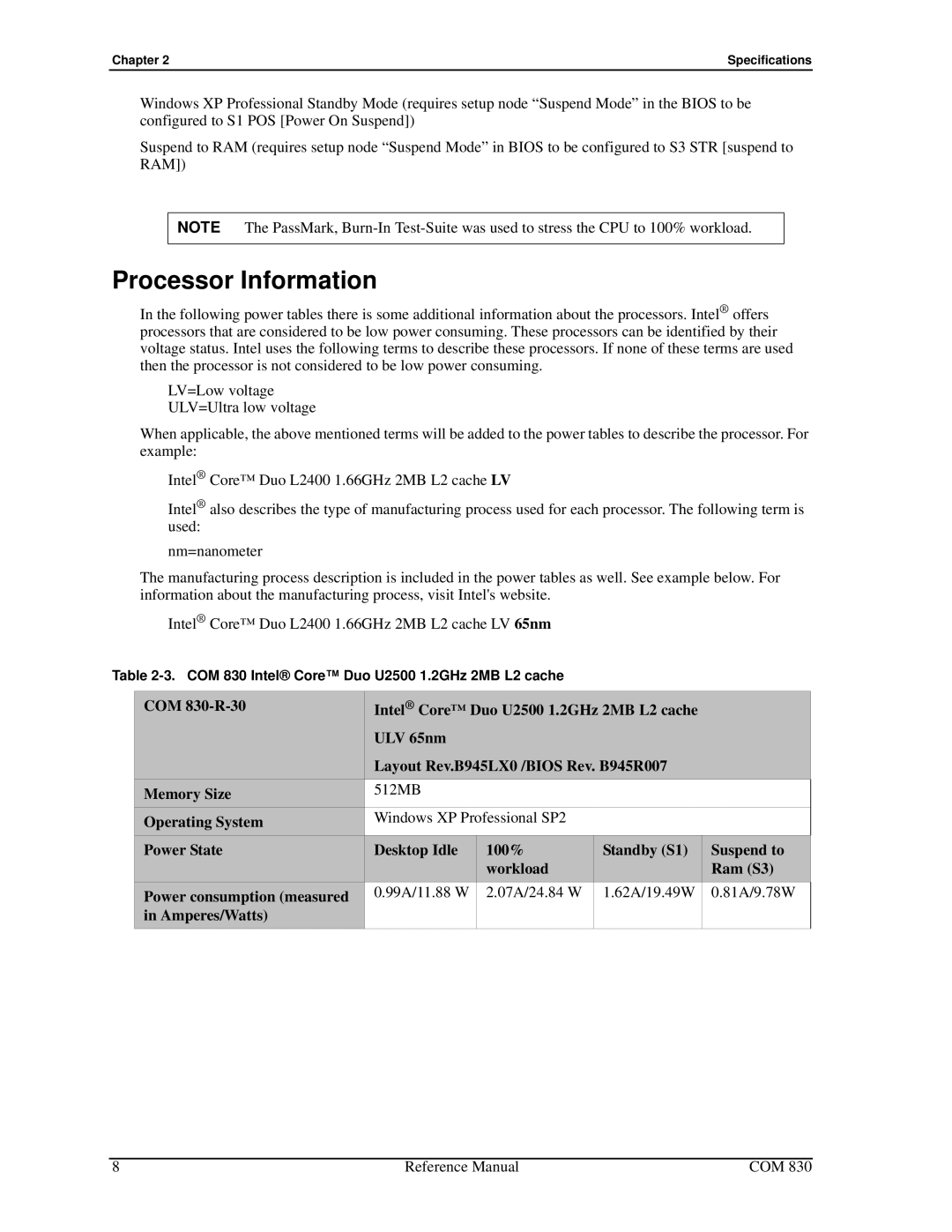
Chapter 2 | Specifications |
Windows XP Professional Standby Mode (requires setup node “Suspend Mode” in the BIOS to be configured to S1 POS [Power On Suspend])
Suspend to RAM (requires setup node “Suspend Mode” in BIOS to be configured to S3 STR [suspend to RAM])
NOTE The PassMark,
Processor Information
In the following power tables there is some additional information about the processors. Intel® offers processors that are considered to be low power consuming. These processors can be identified by their voltage status. Intel uses the following terms to describe these processors. If none of these terms are used then the processor is not considered to be low power consuming.
LV=Low voltage ULV=Ultra low voltage
When applicable, the above mentioned terms will be added to the power tables to describe the processor. For example:
Intel® Core™ Duo L2400 1.66GHz 2MB L2 cache LV
Intel® also describes the type of manufacturing process used for each processor. The following term is used:
nm=nanometer
The manufacturing process description is included in the power tables as well. See example below. For information about the manufacturing process, visit Intel's website.
Intel® Core™ Duo L2400 1.66GHz 2MB L2 cache LV 65nm
Table
COM | Intel® Core™ Duo U2500 1.2GHz 2MB L2 cache |
| ||
| ULV 65nm |
|
|
|
| Layout Rev.B945LX0 /BIOS Rev. B945R007 |
| ||
Memory Size | 512MB |
|
|
|
Operating System | Windows XP Professional SP2 |
|
| |
Power State | Desktop Idle | 100% | Standby (S1) | Suspend to |
|
| workload |
| Ram (S3) |
Power consumption (measured | 0.99A/11.88 W | 2.07A/24.84 W | 1.62A/19.49W | 0.81A/9.78W |
in Amperes/Watts) |
|
|
|
|
|
|
|
|
|
8 | Reference Manual | COM 830 |
